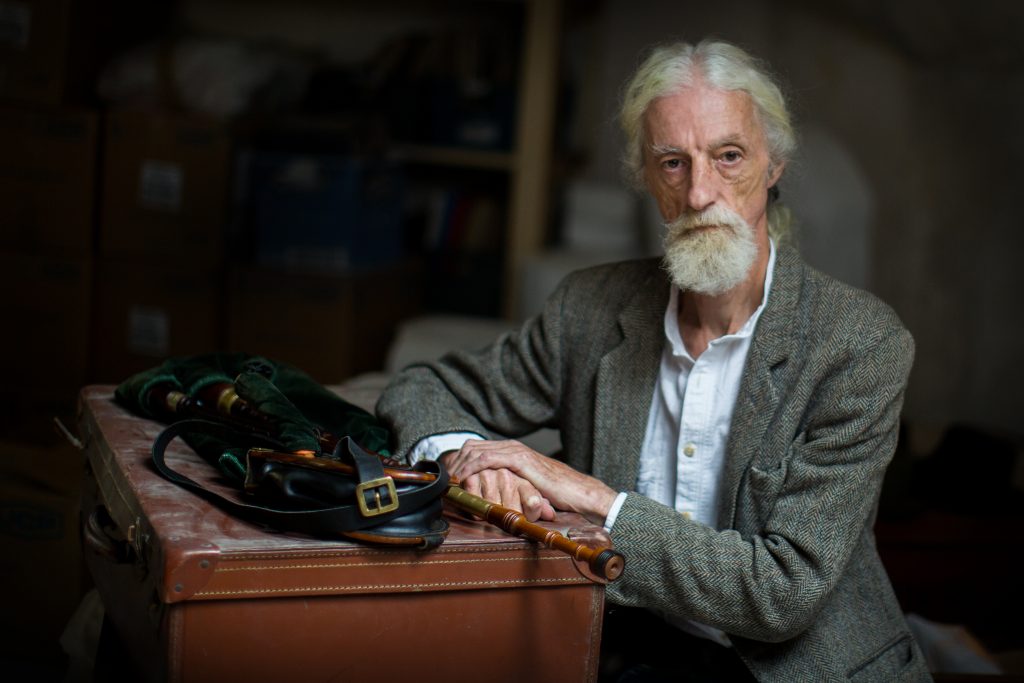A Chat With...Matt Seattle
This week, we are chatting with brilliant border piper, Matt Seattle. A real musician’s musician, Matt brings the traditional repertoire to life with virtuosity and flair, and has made a notable contribution to the tradition through his own compositions and arrangements.
Quick bio
Instrument(s): Guitars (electric, acoustic, classical) from age 13, fiddle from age 31, Scottish smallpipes, Border pipes from age 39.
Best known as: Performer, composer, publisher
Your band(s) or collaborations that we should know about: Border Directors; Matt Seattle Band; Matt Seattle duo & trio
Sub-genre: Bagpipe music from both sides of the Anglo-Scottish Border
Number of years on the folk scene: 40+
Greatest achievement or claim to fame:
1. Original compositions and arrangements which have entered the tradition (the air Lindisfarne, the reel Tartar Frigate, the variations on Cuckold come out of the Amrey).
2. Rediscovery and publication in 1995 of the William Dixon manuscript from Stamfordham dated 1733, the earliest substantial record of the Border piping genre.
What are you currently working on, and what’s in the pipeline for the coming year?
Composing, arranging and publishing; ceilidhs, concerts and sessions.
If someone is reading this who hasn’t listened to any of your music before, where should they start?
For contrast, listen to Lindisfarne and The Damascus Drum (see videos on the right).
What’s on your playlist at the moment, and why does it appeal to you?
It’s probably a fault, but I spend far more time playing and composing than listening.
Which folk albums, in your opinion, should everyone listen to at least once, and why?
I listen to a lot of traditional musicians a lot of the time, but I’ve chosen two by Karine Polwart: Fairest Floo’er and This Earthly Spell, because of their depth and compassion.
Where are you most ‘at one’ with your instrument? (e.g. in the studio, in a session, on stage, in the rehearsal room, on your own, somewhere else)
All of those in different ways.
Please tell us about your practice regime, or how you keep developing as an instrumentalist.
I aim to practise for a solid hour each day when practical, revisiting previously learnt or composed pieces and learning new ones.
What’s the most nerve-wracking thing you’ve done (musically), and what did you learn from it?
Playing pipes with a well rehearsed young string quartet to a very large audience (6 or 7,000?) at Rudolstadt Folk Festival in 2006; I learnt that positive feedback from a supportive audience can raise a performance to a new level. This also applies to smaller events (ceilidhs, concerts and sessions), the converse being that a negative attitude from a performer or audience member can do the opposite – fortunately a rare occurrence.
What’s the best advice you’ve been given as a musician?
Follow your passion even if everyone else thinks you’re crazy (this was my own advice to myself when I became obsessed with the Border pipe repertoire).
What’s your dream band line-up (dead or alive)?
Too many great players and singers of many genres to mention – seriously!
To satisfy the instrument/equipment geeks amongst us, please tell us a little about the gear you use to make music.
A Martin baby dreadnought which I mainly use for composing and arranging; a decent Mirecourt violin; Border bagpipes with drones by Phill Brown, chanter by Nigel Richard and bellows by Tom Swinney.

Photo credit: John Parris, used with permission
Further listening
Lindisfarne, one of Matt’s most well known compositions
The Damascus Drum, another of Matt’s compositions, played by the Matt Seattle Band
Karine Polwart
Matt Seattle & Donald Knox
The Wild Hills o’ Wannie
You can hear Matt’s variations for Cuckold Come out of the Amrey on the soundtrack for the movie Master and Commander: The Far Side of the World
